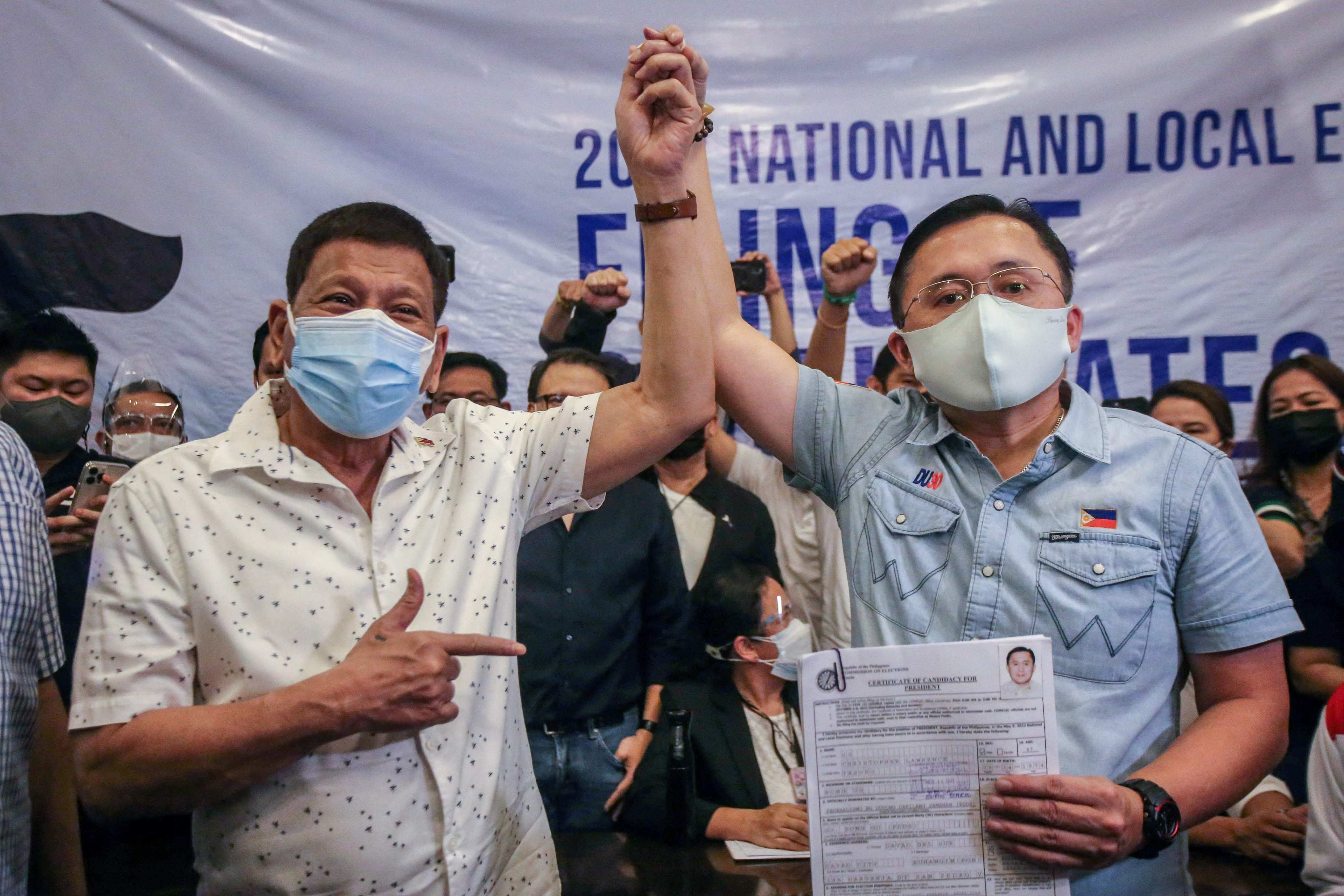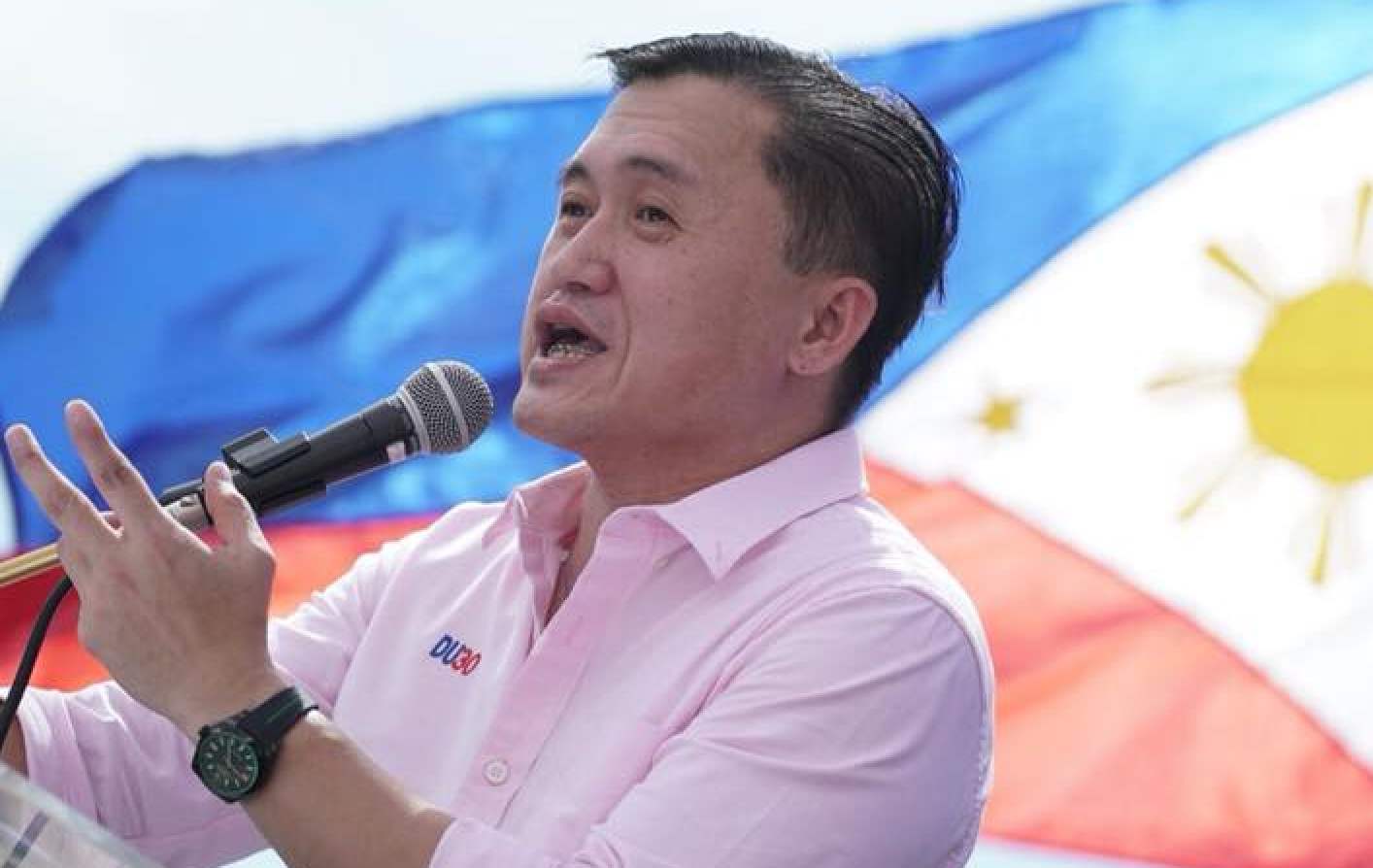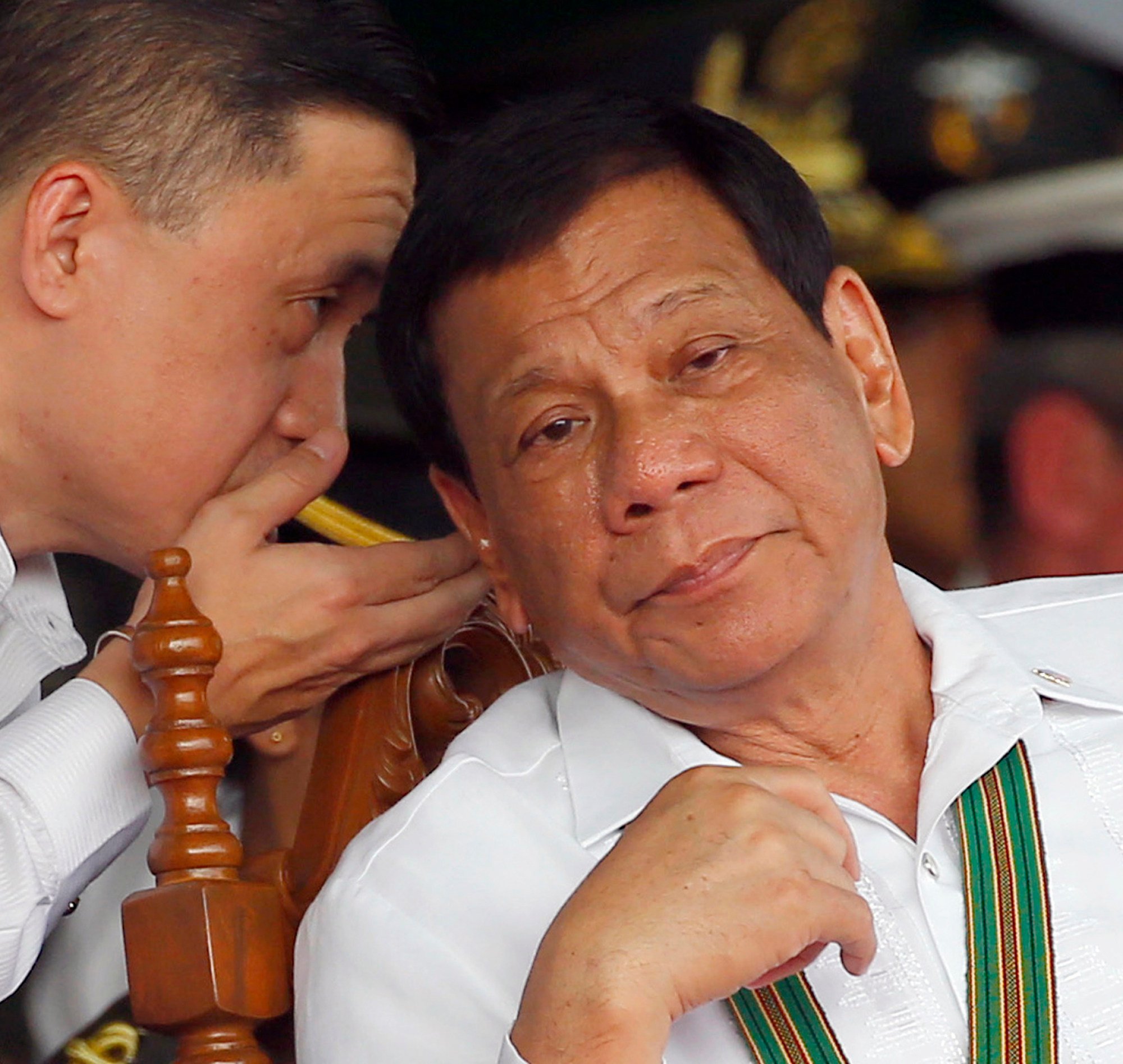Duterte’s ‘political son’ Bong Go gains ground in Philippines senate race: survey
The former president’s ICC arrest has led his indignant supporters to drum up support for Duterte-aligned candidates, analysts say

A new survey has placed Senator Christopher “Bong” Go – a long-time aide to Rodrigo Duterte – near the top of the Senate race, with analysts saying the former Philippine president’s arrest by the International Criminal Court (ICC) has galvanised his supporters to back candidates allied with his coalition in next week’s midterm election.
The senator came in second at 45 per cent, close behind popular broadcaster and incumbent party-list representative Erwin Tulfo at 49 per cent, in the list of Senate preferences, according to independent opinion firm WR Numero.
Some 2,500 Filipinos nationwide were polled from April 23 to 30, with the survey aimed at recording public sentiment on pre-election preferences just over two weeks before Filipinos are set to head to the ballot on May 12.
The latest report showed the top two spots were a “toss-up” between Go and Tulfo, according to Julio Teehankee, a professor of political science and international studies at the De La Salle University.
However, while Tulfo has maintained steady ratings from 46.5 per cent in February to 49 per cent in the fourth week of April, Go has climbed the rankings from 30 per cent in February to 42 per cent in the first week of April, until reaching 45 per cent last week.

Go’s popularity is also reflected in other surveys, registering a rating of 62.2 per cent in voter preferences in an April survey by Pulse Asia.
The WR Numero survey also showed Go in projections of the winning 12 seats across various regions in the country. He was the favourite of voters in the Visayas region and came in second in Mindanao, known as the bailiwick of the Duterte clan.
Meanwhile, he came in fourth in Metro Manila, and eighth in the rest of Luzon island – a known stronghold of the Marcos clan.
There had been a “clear growth” in support for Duterte-aligned candidates in the past few weeks, from a hardened minority into “a growing bloc that’s reasserting its presence in the political landscape”, said Cleve Arguelles, CEO and president of WR Numero.
“While Duterte’s base has always been vocal, the ICC arrest has injected fresh energy and a renewed sense of grievance into their ranks. This has consolidated Duterte supporters, drawing in voices who may not have been as active before but now feel compelled to rally behind Duterte as a symbol of resistance,” Arguelles said.
The heavy support for Go and other Duterte-allied candidates such as Senator Ronald dela Rosa stemmed from the populist appeal that Duterte enjoyed, he added.
“It’s more about the charisma that stems from Rodrigo Duterte. It’s more of this emotional association that they have. And therefore, it’s harder to be conditional [about their support].”
Go registered having the highest number of “hard support” among his followers in the WR Numero survey at nearly 28 per cent, who were asked which names they were certain they would vote for in the election.
Robin Michael Garcia, founder and president of the WR Advisory Group, told This Week in Asia that Go’s steadily climbing numbers indicated that Duterte supporters “are really solidifying” in the past few weeks.
Garcia added that they had observed “more intense support among Duterte supporters for Duterte-aligned candidates” in light of the “perceived persecution” of Duterte with the International Criminal Court arrest, as well as of his daughter, Vice-President Sara Duterte-Carpio, who was facing pending impeachment charges before the Senate.
‘Duterte stand-in’
Calling Go “the symbol of Duterte” and his “political son”, Teehankee said his strong polling results also indicated the effective recall of the Malasakit, or Care, Centres, the one-stop government medical help centres that had been attached to his name.
Since the former president’s ICC arrest, Go has emerged as “one of the clearest proxies for the Duterte brand”, Auguelles said.
“His visibility in media and ground mobilisation efforts also appear to have intensified in final weeks of campaign, allowing him to capture not just core supporters but also voters who feel a mix of sympathy and defiance in response to Duterte’s legal troubles. It’s a rally-around-the-flag effect, but focused on Go as Duterte’s stand-in.”
A long-time aide of the former president, Go first started working for Duterte when the latter was elected as first-district representative of Davao City, and continued as his executive assistant in his succeeding terms as mayor.

Go’s advantage in the race was that “he’s a reelectionist with strong nationwide name recognition”, Arguelles said.
“His association with the Malasakit Centres – a programme directly addressing healthcare needs, which is a top priority for many voters – gives him an appeal that cuts across partisan lines.”
Go became special assistant to the president when Duterte was elected in 2016, and was elected to his first term as senator in 2019, when he ranked third.
As senator, he sourced for funding for Malasakit Centres from different government agencies.
Then-president Duterte signed a law establishing a Malasakit Centre in every government hospital in 2019, gaining criticism from opponents who argued that the centres were being used as a “partisan tool” to further Go’s political ambitions.
“Many see Go as a practical choice, someone who delivers services regardless of politics. That allows him to attract voters who may not be motivated by Duterte loyalty but are drawn to his track record in health and social services,” Arguelles said.